Full list of South Australian recipients of Queen’s Birthday Honours
Adelaide-born or raised public figures from Guy Sebastian to Natasha Stott Despoja — and others who quietly served their communities for years — have been recognised in the Queen’s Birthday Honours.
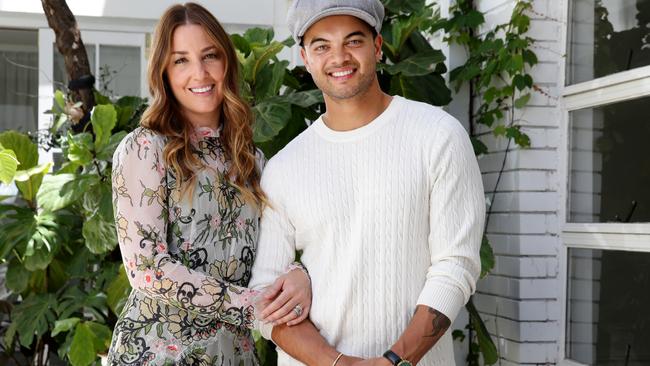
SA News
Don't miss out on the headlines from SA News. Followed categories will be added to My News.
Adelaide-born or raised public figures from Guy Sebastian to Natasha Stott Despoja — and others who quietly served their communities for years — have been recognised in the Queen’s Birthday Honours List for 2019.
GUY SEBASTIAN, AM
Guy Sebastian was six when parents Ivan and Nellie made the decision to immigrate to Australia from Malaysia.
As the new boy at school who looked and spoke differently, Sebastian “wanted to feel like I belonged”.
“For somebody who migrated as a young kid, there was this feeling of wanting to fit in, you want to belong,” he said. “I talked differently and also looked different.”
There was a little of that young boy behind the tears which Sebastian shed when he was informed he would be a recipient of the OAM, feeling the embrace of the country in which his family had sought a better life.
“So many times throughout my life I have felt like a proud Australian — obviously, winning the first Australian Idol (in 2003), representing Australia overseas at World Idol and then Eurovision,” he said.
“As soon as I got the news about the OAM, I couldn’t wait to tell Mum and Dad who had sacrificed everything for us.
“We slept in a rello’s garage when we first got to Australia; my Dad did that so we could have all the opportunities this country has to offer. So, yeah, I feel really proud.”
Sebastian’s award isn’t just about sharing his extraordinary musical talent.
His main charitable focus is the work of the Sebastian Foundation he set up with wife Jules to renovate shelters for women and their children escaping domestic violence.
“The arts connects me to the community, and Jules and I wanted to take that even further so we set up the foundation,” he said.
“I was talking to my Voice artists this week and they were saying how they feel strange because people were coming up to them and telling them how their stories inspired them.
“I told them they are now already at a stage where they are realising music and art have a much deeper purpose than a bunch of notes strung together.”
The foundation has helped overhaul more than seven shelters for families in need over the past few years.
“More than anything, this really inspires me just to be a better person,” Sebastian said.
— By Kathy McCabe
NATASHA STOTT DESPOJA, AO
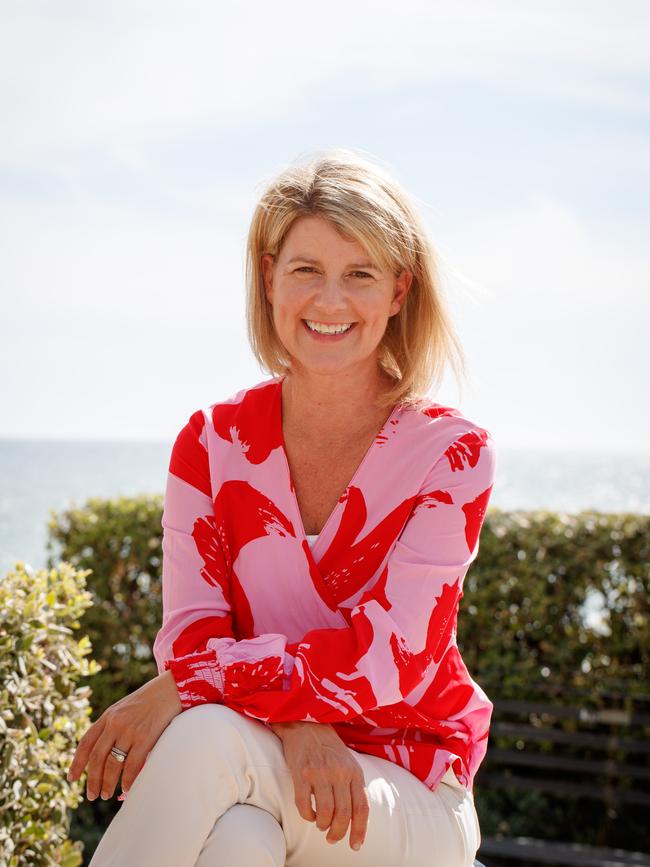
Given her AO award was for promoting gender equality, former Australian Democrats senator Natasha Stott Despoja couldn’t help but note the historic number of women being recognised.
“I look forward to the day when women are equally recognised in these awards,” she said on her way to the UK. “Just as I look forward to gender parity in our powerful and decision-making institutions.”
Ms Stott Despoja, who, in 1995, aged 26, became the youngest woman to become a federal MP, has built a post-parliamentary global career tackling gender parity and with it the difficult subject of the prevention of violence against women and children.
She singles out her work as chairwoman of the Australian anti-violence body Our Watch as one of the great privileges of her life.
“It means that every day I am confronted by one of the most heinous manifestations of gender inequality, and violence against women and children,” said Ms Stott Despoja who, in 2011, was awarded the AM for her service to politics and as a role model for women.
“Our focus is to stop the violence before it starts. We aim to tackle the attitudes and behaviours that give rise to this violence in the first place,” she said.
As Ambassador for Women and Girls from 2013 to 2016, Ms Stott Despoja, who is mentioned as a possible future Governor of South Australia, has seen the best and worst of humanity, and wrote about the experience this year in her book, On Violence.
“I have sat with traumatised women in refugee camps on the Syrian/Turkish border and comforted terrified women in church-run shelters in the jungles of Bougainville,” she wrote. “I have seen the shame and the stigma. It haunts me.”
Importantly, she has also been an agent for change.
“To be a part of ensuring strong commitments by Australia for internally displaced woman and girls, especially on health and sexual health matters, was especially important to me,” she said.
In 2003, her marriage to staunch Liberal supporter Ian Smith raised eyebrows given their political differences, but 16 years and two children later they work hand-in-hand in the not-for-profit sector, focusing on the political and community issues that unite them.
“We’re passionate about the situation facing displaced persons, asylum-seekers and refugees around the world,” she said. “It’s been a joy to work with him on many social issues, including medical research.”
They are raising two politically aware children, Conrad and Cordelia, who Ms Stott Despoja is already proud of because of their care and commitment. As a parent, she wants them to be good global citizens who understand their rights and responsibilities, not just in Australia but to their brothers and sisters around the world.
“I’m very proud of their activism and burgeoning advocacy,” she said.
— By Penelope Debelle
CARRIE BICKMORE, OAM
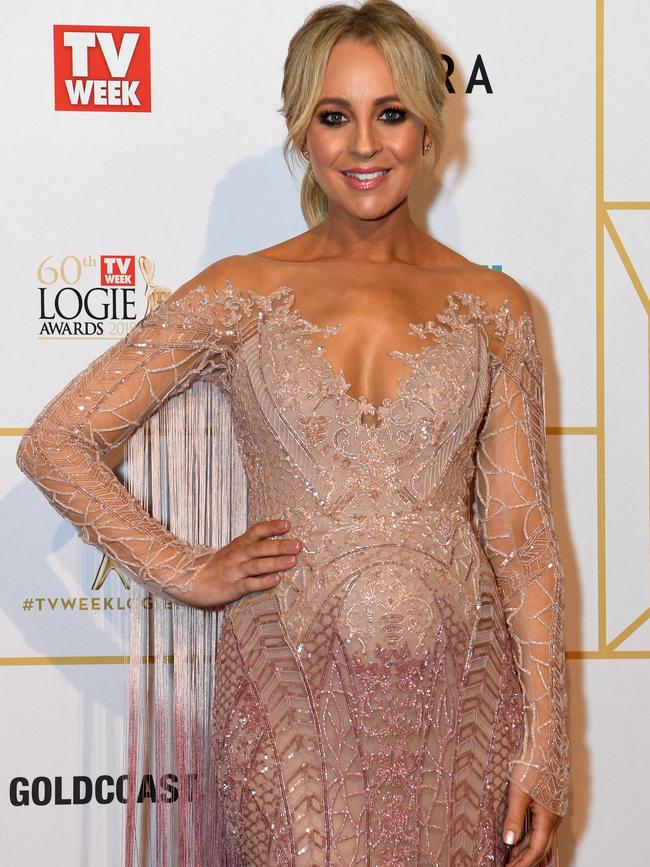
Adelaide-born media identity Carrie Bickmore is being recognised for her service to broadcasting and, her greatest passion, raising funds and awareness for brain cancer.
Best known as the host of Channel 10’s The Project, the television and radio presenter is the founder of Carrie’s Beanies 4 Brain Cancer Foundation.
The charity has raised more than $11 million for brain cancer research in four years.
Bickmore founded Carrie’s Beanies 4 Brain Cancer Foundation after her 2015 Gold Logie win, when she accepted her award wearing a beanie in memory of her husband Greg Lange, who died from brain cancer in 2010.
Bickmore has said that it is her lifetime mission to help find a cure for brain cancer and has described her fundraising as “the most rewarding thing by far”.
She has three children — Oliver, her 11-year-old son with her late husband, and daughters, with partner Chris Walker, Evie, 4, and Adelaide, born in December and named after Bickmore’s birthplace.
— By Anna Vlach
NICK MINCHIN, AO
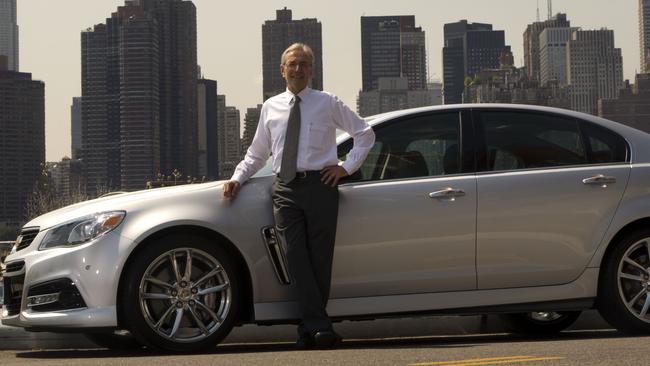
Liberal powerbroker Nick Minchin, who has been honoured for distinguished parliamentary service, has condemned the loss of Australian car manufacturing and declared his distress that former colleague Joe Hockey farewelled the industry.
The former industry and finance minister, who engineered a car manufacturing assistance package when in John Howard’s Cabinet, said he believed the industry could and should have been retained.
Holden shut the door on Australian car manufacturing when its Elizabeth plant closed in October, 2017.
“I’ve got to say I’m pretty saddened by the demise of the industry in Australia and, indeed, it somewhat distresses me that it was, essentially, Treasurer Joe Hockey who said goodbye to the industry,” Mr Minchin told The Advertiser.
“As a former South Australian senator, frankly — and this will be a controversial comment — it shows the dangers of the government having both the prime minister and the treasurer from Sydney, which was the case under my good friend Tony Abbott, with Joe Hockey also from Sydney.
“There’s a risk in that. This is a widespread, diverse country. Small states like South Australia are very different to Sydney, where I grew up. I don’t think there was sufficient focus on the critical importance of the industry to states like South Australia — and Victoria — and really to the nation as a whole.”
Mr Minchin said critical skills and capacity had been developed over many years and could have been preserved with relatively small government support, like in other countries.
He said car industry subsidies were “very small beer” when compared to “the amount of subsidies we provide to builders of windmills and solar panels and things”.
Mr Minchin, 66, an SA senator from 1993-2011, has been honoured with an Officer of the Order of Australia (AO) for “distinguished service to the Parliament of Australia, particularly in the industry and finance portfolios, and to the people of South Australia”.
Renowned and respected for his fierce, yet respectful, political advocacy, Mr Minchin urged today’s politicians to focus on issues and policies, as he argued it had been during his career.
“I am, I have to say, disappointed that since that time it does seem to have become more bitter from a personal point of view, that there are much more personality-based attacks,” he said.
— By Paul Starick
BRENDA WILSON, AM
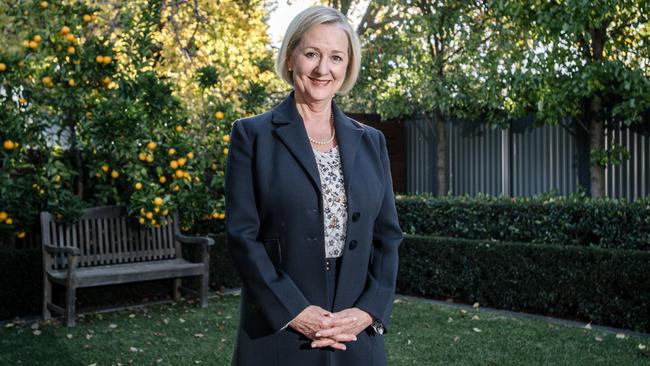
When Professor Brenda Wilson was growing up in Llanfairpwllgwyngyll in Wales, she wasn’t factoring in Queen’s Birthday honours to her lifestyle.
After a decorated career in nursing, as head of the SA Cancer Council, and multiple degrees and volunteer work, Prof Wilson is recognised today with an Member of the Order of Australia (AM) for “significant service to community health, and to the people of South Australia through a range of roles.”
Prof Wilson came to Adelaide with her family as a “ten pound Pom” on the Fairsky in 1959, spending time in Henley Beach, Ardrossan and Elizabeth. She recalls it as an exciting time of adventure.
“I had my fifth birthday crossing Equator — we didn’t have a care in the world,” she said.
“We were excited and looking forward to the future.”
Her advice to young women — and young men — today is to “follow your passion”.
“Work hard, follow your passions, find a peer group that encourages and supports you in your work,” she said. “Don’t sit in a job you are not passionate about — but you might have to give up your weekends along the way. Having a job you love can be a lot of work.”
As well as heading the SA Cancer Council from 2003-2015, Prof Wilson has been a member of the Flinders University Council since 2015 and its executive council since 2017, a director of Adelaide Community Healthcare Alliance since 2016, director of Aged Care Housing (ACH Group), since 2014, and director of State Opera of South Australia since 2017.
She has worked on the board of Burnside Hospital, the Hutt Street Centre, and chaired the Opera SA Fundraising Committee.
Other roles have included chief executive and director of nursing at the Hampstead Rehabilitation Centre.
Prof Wilson was awarded the Telstra Business Women’s Award, Corporate and Government Sector, South Australia, in 2000 — and has served as Lieutenant governor of South Australia since 2014.
— By Brad Crouch
DEREK BYERLEE, AO
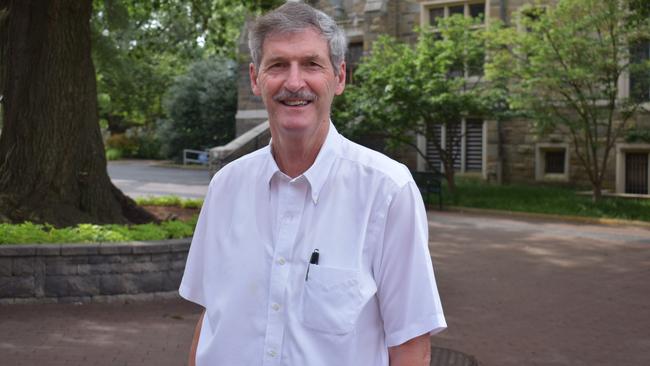
He grew up on a mixed farming property in the Flinders Ranges, but Dr Derek Byerlee’s parents quickly realised their son wasn’t destined for life on the land.
Instead, he went on to make a significant contribution to global food security. Dr Byerlee has been made an Officer of the Order of Australia for his distinguished service to agricultural economics, particularly to sustainable development, poverty reduction and food security.
“I grew up on a sheep-wheat farm near Eurelia about 25 kilometres north of Orroroo,” he said. “My parents, and my mother in particular, recognised that I would not make a good farmer but had academic potential.” Dr Byerlee studied Agricultural Science at the University of Adelaide and after completing his study, he left Australia in 1968 to pursue a doctoral degree in the US.
“After that I taught at Michigan State University and spend most of the next 20 years living and working in developing countries including Sierra Leone, Mexico, Pakistan, and Ethiopia,” he said.
Dr Byerlee worked for 17 years for the International Maize and Wheat Improvement Center in Mexico.
The center’s work has been a driving force for crop yield improvements across the globe. “This centre was the home of the semi-dwarf wheat varieties that ushered in the green revolution in Asia, as well as improved maize varieties used widely in Africa,” Dr Byerlee said.
Dr Byerlee now teaches food and agriculture at Georgetown University in Washington DC.
He said receiving the Queen’s Birthday honour came as a great surprise.
“I am proud to be a recipient and very proud of my roots in SA. “I would like to recognise the strong support of my family both in Australia and here in Washington in achieving this award.”
— By Paula Thompson
JACK AND GWEN CROMBIE, OAM
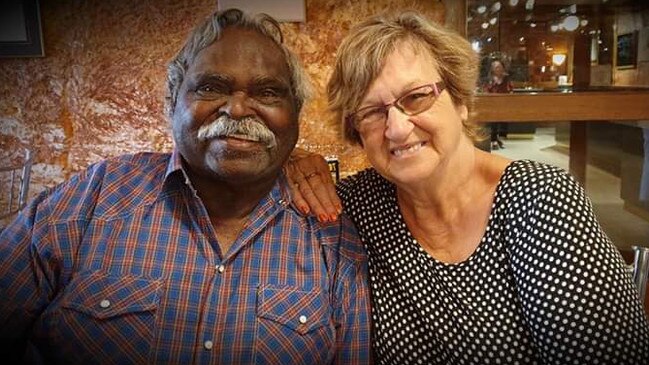
Gwen and Jack Crombie’s marriage has resulted in much more than an alliance between the pair.
For years, the Coober Pedy couple has been fostering a stronger relationship between Aboriginal communities and other Australians.
“Ever since we’ve been together, I’ve had one foot in both worlds,” says Gwen, who turns 75 tomorrow.
She began nursing in Coober Pedy in 1988, focusing on aged care, meeting her husband-to-be, a Yankunytjatjara man, while he was serving as a police officer. “I’d come up here on holidays in 1985 and loved the Outback and the red dirt and I wanted to know about Aboriginal culture,” she says. “When I moved here it was going to be for six months but I stayed for 14 years.”
The couple moved around many times, to the APY Lands and several places in the Northern Territory.
They were approached by Red Cross, who wanted their help to set up in indigenous communities and the pair eventually organised a training package to help foster cross cultural understanding between white and Aboriginal communities in the workforce.
Gwen says that in one area, complaints were made that the indigenous staff were leaving work while they were meant to be on the job.
“When we spoke to the Aboriginal workers they said, ‘We go to work and no-one talks to us … and we feel like idiots, so we go home’,” she says.
The couple found ways to break the cultural barriers — such as bringing a football to kick during breaks, and taking contractors out into the country.
“They ended up working really well together,” Gwen says.
In 2013, the couple wrote a book about Jack’s life, touching on aspects including tribal life, modelling clothes for RM Williams, cattle mustering and rodeo riding.
Jack and Gwen have served a long list of community organisations, including setting up the Aboriginal Elder Visiting Program at Port Augusta Prison.
They recently returned to Coober Pedy so Jack, now about 89 years old, could be back on country. His exact birthdate is unknown.
Jack and Gwen will both receive a Medal of the Order of Australia (OAM) for their community work.
— By Michelle Etheridge
TERRY WORTHINGTON, AM
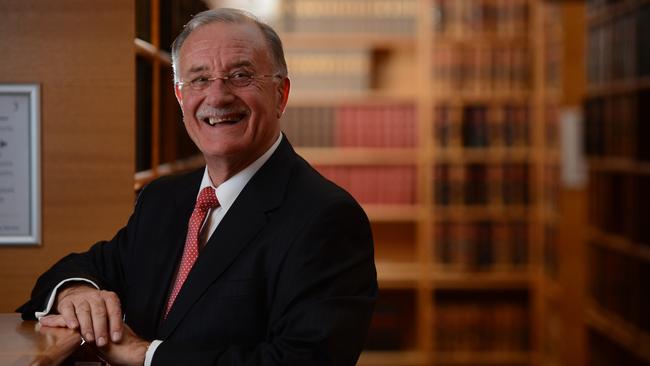
It is often hard to remember, in this era of budget cuts and seemingly interminable delay, that there was once a time when the state’s criminal courts ran like clockwork.
But there was such a period, just six years ago — and it happened under the careful stewardship and watchful eye of the District Court’s then-Chief Judge, Terry Worthington.
Today Judge Worthingon, 76, has been honoured for his significant service to the law, and to the judiciary, by being appointed a Member of the Order of Australia.
“I’m honoured to be given this award,” he told The Advertiser.
“I’ve enjoyed being part of the committees and boards that I’ve served on.
“It was a privilege to lead the court for 15 or so years.”
His Honour stepped down from the bench in 2013, after the court had finally reined in its historic, decade-long backlog of criminal trials.
Thanks to Judge Worthington and his peers, the wait for such trials was slashed from 13 months to just 20 weeks, lessening victims’ trauma and defendants’ time in custody.
Renewed trial efficiency was but one of the many accomplishments in His Honour’s long career.
Born in Brisbane, he graduated with a Bachelor of Law from the University of Adelaide in 1967, was admitted to the bar in 1970 and appointed QC in 1988.
He served as president of the Law Society, chairman of the Legal Services Commission and as Commissioner on the Commonwealth Human Rights and Equal Opportunity Commission.
In August 1995 he was appointed a judge of the District Court and, in 1997, he was made Chief Judge — just as it became the state’s primary trial jurisdiction.
That change brought with it unprecedented levels of work, generating the backlog that would eventually be solved by giving judges the power to oversee plea bargains.
Those “special directions hearings” — still in use to this day — eased the logjam and vastly improved case flow management, until subsequent State Budget cuts reduced resources.
— By Sean Fewster
BRIAN HADDY, OAM
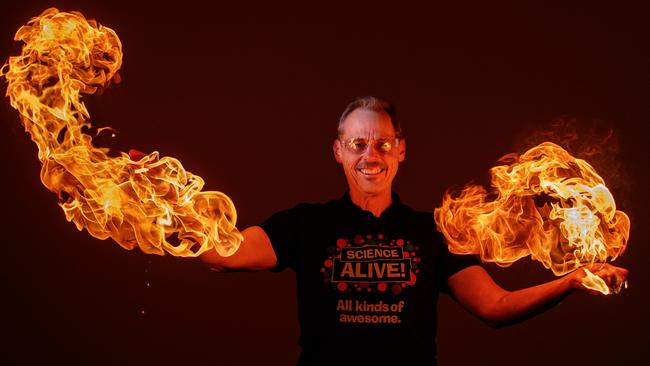
Sparking an interest in science and fanning the flames with family-friendly fun has earned Brian Haddy of Nairne a medal for service to science education.
The Science Alive! event director and SciWorld co-creator said he felt “very honoured and very grateful” to those he had worked with over the years.
“I love organising events that appeal to lots of people, especially seeing young families having an enjoyable day out that's also a learning experience, it’s very satisfying,” he said.
“I get to do it many times a year now, because Science Alive! has grown to be not only the annual Showground event but we also run Science Alive! events now at Tonsley and Elizabeth each year and Whyalla, Mount Gambier and Port Augusta, two weeks we had our first interstate event at Geelong.”
Mr Haddy said he fell into science education “accidentally”, while working for an international fundraising consultancy firm.
He picked up the Investigator Science and Technology Centre as a client and was sent out on part-time contract to help them raise funds.
He became so committed to the cause that he took a job with the centre instead and eventually became deputy general manager and sponsorship co-ordinator.
After the Investigator folded in 2006, SciWorld rose from the ashes to continue to run science education programs and Mr Haddy played a central role as managing director from 2007-18.
Mr Haddy said the continued success and popularity of hands-on science events showed there was a real need and thirst for them in the community, which needs science literacy more now than ever before.
— By Clare Peddie
MARGIE FISCHER, AM
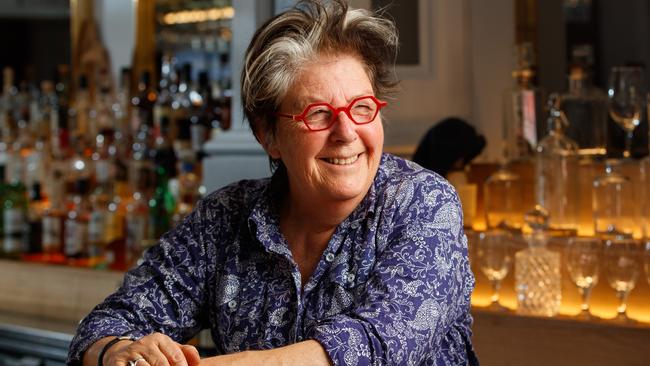
Margie Fischer is best known as co-founder of Feast, South Australia’s gay and lesbian, now queer festival.
But she has been the impetus behind many events, productions and happenings that speak of her own ideas about being an outsider and the power of the arts to change society.
A lesbian and a daughter of Austrian Jews who survived the Holocaust, she felt the differences when she grew up in Sydney.
She turned herself into a comedian and circus performer and came to Adelaide 40 years ago to deliver some outrageous comedy sketches in the Fringe involving exposed nether parts and toilet seats on one occasion. She co-founded Vitalstatistix, Australia’s first all-women’s theatre company, in Adelaide in 1984.
“There were no roles for women, no writings by women, no directing by women, no technicians that were women: it was rare,” she said. “So we started Vitals to employ ourselves.” By the time she left, Vitals was regarded as the national women’s theatre company.
Ms Fischer next won a Ros Bower Award, a creative scholarship funding her for a year to consider her future and her practice. She realised that while Sydney and Melbourne both had gay and lesbian festivals, they had been established as protest demonstrations when homosexuality was illegal.
The Dunstan era had decriminalised homosexuality, so Adelaide’s equivalent would have a different flavour.
With three others she set about establishing the first Feast Festival in 1997. It would be an extravagant celebration of gay pride, but it would also be full of theatre and cultural events.
By roping in everyone from author Robert Dessaix to State Theatre’s A Hard God,Ms Fischer was able to give the Festival a distinct and different identity to Australia’s other gay and lesbian celebrations. She was artistic director until 2002 and Feast flourished. In 2016, when the festival ran into hard times, she returned to reinvigorate it and put it back on track.
Now 68, she is running this year’s Feast Festival and continues to run Gay Bingo and Queer Youth Drop In. She has also been active in progressive Jewish organisations in the small Adelaide Jewish community and at the national level. Feast’s Mazel tov Margie will be staged this week to celebrate her achievements, and her AM.
— By Tim Lloyd
STEPHEN LARKINS, OAM
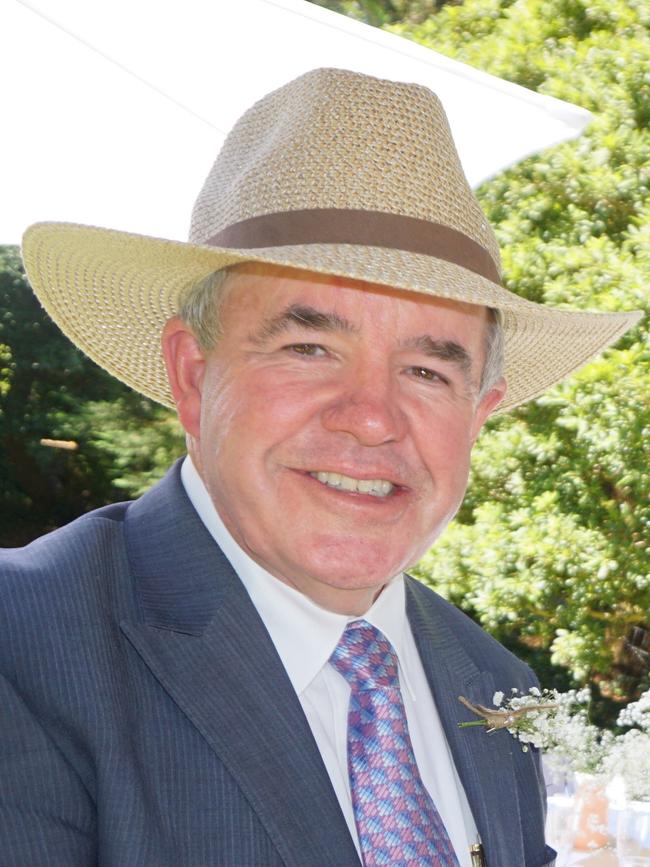
Former army captain Stephen Larkins was a battlefields guide in France when he had the idea for a digital museum to hold the service details and records of every Australian military veteran.
A decade on and his ingenious idea and drive to create the RSL Virtual War Memorial, along with his service to the community and veterans in general has seen the Tusmore resident awarded an Order of Australia medal.
The VWM commemorates all Australians who have served the nation on active service in times of conflict from the Boer War to the current operations.
“It’s all about veterans, their families and the communities they came from,” Mr Larkins said.
“The resource gives everyone a chance to contribute and tell their stories which is what our history is ultimately all about.”
The VWM already hosts the memories and records of 700,000 Australians who served, including every person, more than 100,000 who died in the service of the nation.
“Our aim eventually is to have everyone on there who has served nationally which is 1.6 million people” Mr Larkins added.
“The WWI records are sensational and we’re lucky we’ve got them all as Britain lost many of those in WWII (during bombing raids).
“But Australia’s WWII records that are the big ones are state based and it’s just the sheer numbers of those that makes it tricky.”
Among many people who have contributed to the creation of the VWM, Mr Larkins pays tribute to Australian War Memorial director Brendan Nelson as being “a great support” and one of the few people who “got the concept early”.
The former deputy president of the SA Branch of the RSL was a 20-year member of the Australian Army and then had 17 years with the Army Reserve.
He’s been president of the SA Peacekeepers Sub-Branch since 2005 and a member of Rotary since 2003.
After leaving the army Mr Larkins had a high level business career as 14 years as the chief executive of the Construction Industry Training Board and before that as five years as general manager of the SA branch of the Australian Institute of Company Directors.
— By Craig Cook
KERRY HEYSEN-HICKS, AM
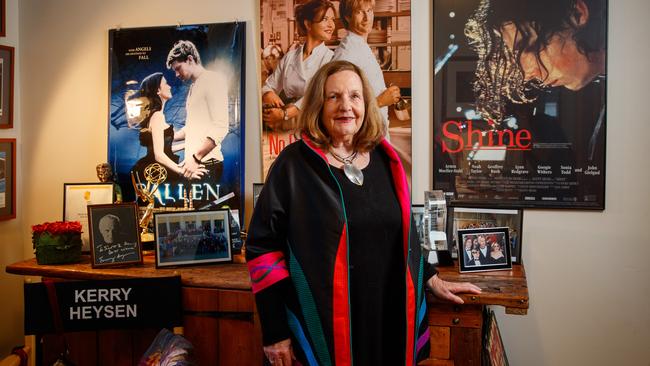
After 40 years, filmmaker Kerry Heysen-Hicks steps into the limelight as a producer whose success has made her well known in Hollywood, if not so much at home.
“What I like about it is that the role of the producer, by its nature, is an invisible one to the public and that’s how it should be,” said Heysen-Hicks, who has received an AM for services to the South Australian film industry.
“It’s important, I think, to have that recognition.”
As a member of the prestigious Producers Guild of America, Heysen-Hicks who is known professionally as Kerry Heysen, has worked on Hollywood projects like Snow Falling on Cedars with Ethan Hawke and No Reservations, with Catherine Zeta-Jones and in 2016 produced Fallen, a young adult fantasy that was released worldwide, all of them directed by her husband Scott Hicks.
While they made a decision early on that it was easier if Hicks took a higher profile, she wants people to understand what she has achieved.
“After 40 years, when people ask me what I do, I think, ‘Really?’,” she said. “I think I’m quite happy that this (award) has happened.”
Heysen-Hicks was a young widow studying film at Flinders University in the early 1970s when she and Hicks met.
Their partnership, with her producing and him directing, led to Shine, the movie filmed in Adelaide that took them so long to make that friends would walk away at parties to avoid hearing about it again. Starring Geoffrey Rush, it won a Best Actor Oscar, was nominated for seven Oscars and opened doors for them in Hollywood that made it easy to consider moving there.
They didn’t, preferring to stay in SA and bring work here, including post-production on major films which she insisted on when making overseas deals — and which is recognised in her award.
While they wanted to raise their sons, Scott and Jett, in Adelaide they actively supported the state’s film industry.
“We’ve just got the best lifestyle here in SA,” said Heysen-Hicks who owns, with Hicks, the Yacca Paddock Vineyard in the Adelaide Hills. “I think the only people who criticise SA have never been here, or never left.”
Throughout their careers they stuck to the decision to work on films together rather than risk being on opposite sides of the world for long periods of time.
— Penelope Debelle
LYNETTE NITSCHKE, OAM
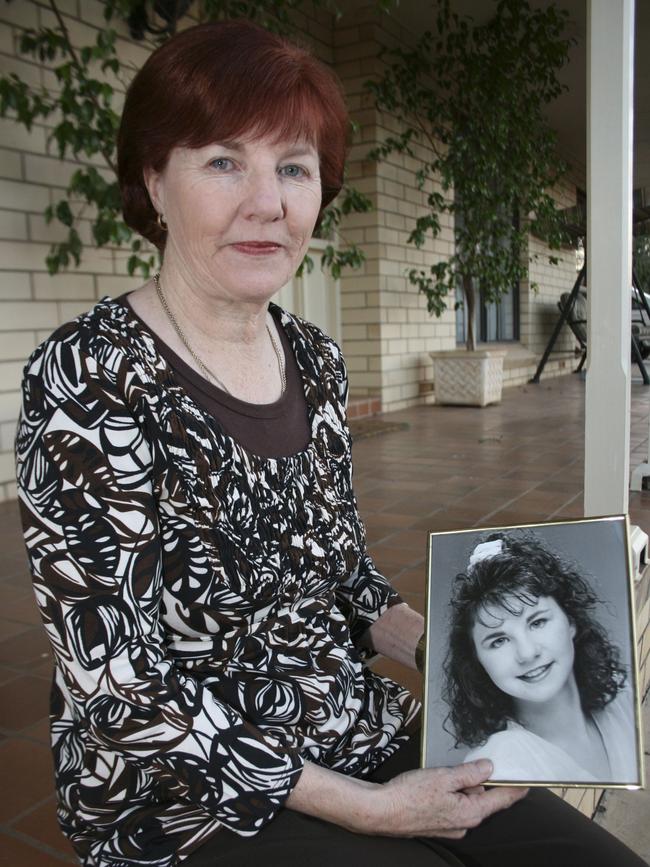
Lynette Nitschke doesn’t like the word “closure”. Rather, she says, recovering from the death of a loved one at the hands of another person should be thought of as a process.
“There is never real closure if you have lost someone to a homicide,” Ms Nitschke said.
“It is a process you live through for the rest of your life.”
Ms Nitschke is receiving the Medal of the Order of Australia for her dedication to victims’ rights in the 28 years since the murder of her daughter Allison, in 1991.
Ms Nitschke established the Homicide Victim Support Group in 1994 and championed the rights of the victims of crime, as well as their friends and family.
“Back then there was no voice for victim’s in court, now we have victim-impact statements and support staff in government agencies,” Ms Nitschke said.
The group is open to anyone associated with a person who has been murdered.
“We are there for people, no matter where they are in the process,” Ms Nitschke said. “Most people can’t start grieving until after the court case is finished.
“They struggle to rebuild their lives. It is a very long journey and what people can’t understand is that you don’t just get on with your life.
“Often when an offender gets out of prison is when people need support.”
Ms Nitschke said the Support Group was working towards a scheme where lawyers would be provided to victims of crime during court hearings to help explain the proceedings.
The group was founded in 1994, with Ms Nitschke at the helm as president — a role she continued until 2004 when she stepped down.
She is still a committee member and is involved in myriad volunteer organisations in Waikerie, including the local Neighbourhood Watch, Meals on Wheels and the district flower show.
Among her many accolades are Citizen of the Year for Loxton-Waikerie in 2016, Riverland Citizen of the Year in 2017 and Victim Worker of the Year in 2008.
— By Mitch Mott
KATHARINE ENGLAND, OAM
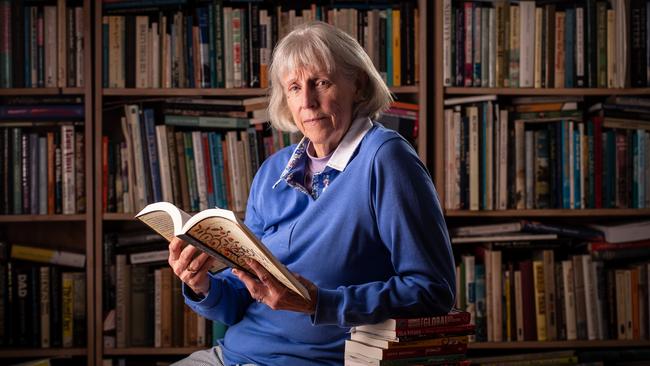
Last year, Katharine England marked 50 years since she first started writing book reviews for The Advertiser. Today, her outstanding contribution to the literary life of Australia is recognised with an OAM for her services to literature.
Ms England said she was “chuffed, but also embarrassed”, adding: “I’m sure they are lots of other people more worthy than me.”
Ms England was born and grew up in Sydney’s Kings Cross, the bookish only child of parents who were also avid readers. She was a 22-year-old Sydney University graduate with honours in English when a job at Woodville High School brought her to Adelaide in 1968. Within weeks, she was wrote her first book review for the newspaper.
Through a long career as a teacher — first in high school and later at TAFE — and raising two children as a single mother, Ms England maintained a punishing schedule of reading and reviewing books.
“I am always reading, but in some ways I’m lucky, because that would be my preference,” she said. “I read all the way through my childhood, and there are still so many books that I’d like to read.
“That’s the only thing about reviewing — you don’t have time in between to read books that you missed over the years or reread old books that you’ve loved, because you’re always reading the next big thing.
“But it’s given me a wonderful excuse that, if my house is a mess and I can’t do things people want me to do, I say, ‘I’m sorry, I’m working’. Because I would be reading no matter what.”
Ms England has also been recognised for her work at TAFE, her contribution to children’s literary magazine Magpies, and for her service on the board of Adelaide Writers’ Week, The Children’s Book Council of Australia, the judging panel of the CBCA awards, the May Gibbs Children’s Literature Trust and church warden at St Oswald’s Anglican Church, Parkside.
— By Deborah Bogle
BRUCE SPANGLER, AM
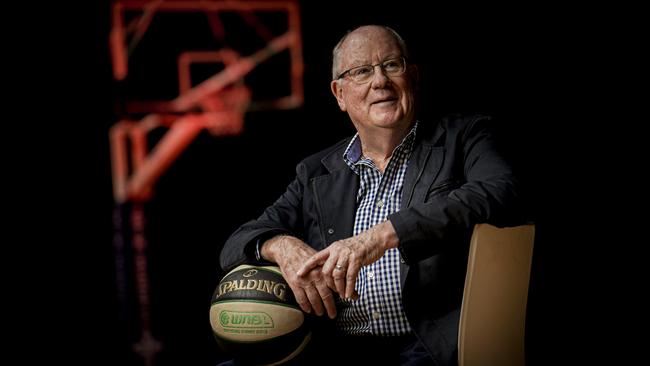
Preserving SA’s place in elite women’s basketball and ensuring the next generation has a pathway to the top inspired Bruce Spangler to save Adelaide Lightning.
The WNBL club announced in November it would relinquish its licence unless external backers were found to cover its $500,000 annual operating costs. In stepped Mr Spangler, leading a consortium of local businesspeople, to assume control of last season’s grand finalist, just as he had done four years earlier.
His rescue mission, along with a lifetime of service to the sport and the wider community, earned him an AM.
“I waited for somebody to do something and it was clearly not going to happen,” said Mr Spangler. “You see the effort and commitment that those girls put in, and you think, ‘There’s got to be a way of making that sustainable, so it doesn’t just live from year-to-year’.
“So I got another consortium together and now I’m chairing the Lightning again. Sometimes, you don’t have to step forward; if everyone else steps back, you’re left standing there by yourself.
“You’re obviously excited (to receive the AM), but there’s got to be better people than me floating around out there. It’s flattering and pretty humbling.”
Mr Spangler began playing basketball in primary school and won a national title with the under-16 state team in 1967.
He later became president of the SA Church Basketball Association, before chairing Basketball SA. He also served on the Basketball Australia and NBL boards.
“Basketball is the sport I’ve become quite attached to and I seem to be able to make a difference in.”
— By Rob Greenwood
MICHAEL DAVIS, AO
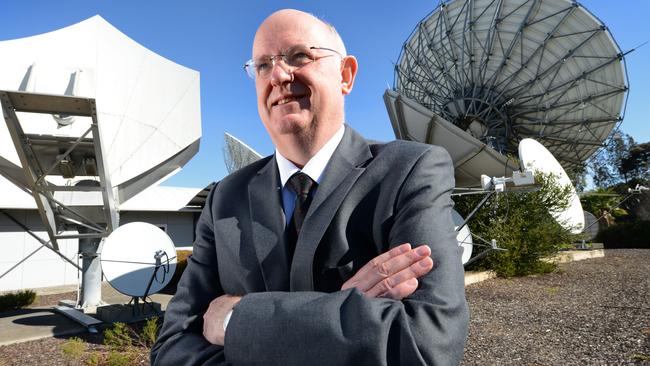
Lawyer Michael Davis is the recipient of an AO for distinguished service to the space industry and science education.
“It's a great honour to be recognised in this way,” he said.
“But the thing that I’m very conscious of is that all of these achievements involved the efforts of a large number of colleagues and friends.
“I was just lucky enough to be in the right place at the right time that I was able to play a leading role in some of the space related achievements, both nationally and also locally in South Australia.”
As chairman of the Space Industry Association of Australia (2013-18), Mr Davis was instrumental in the bid to host the International Astronautical Congress in Adelaide and the subsequent establishment of an Australian Space Agency.
“It certainly focused the space world’s attention on Adelaide and South Australia,” Mr Davis said.
“I think that was one of the important considerations when the Commonwealth Government accepted the recommendation of the expert reference group to proceed to announce establishment of an Australian Space Agency, which was part of the opening ceremony of the Congress.”
Mr Davis had previously devised the Southern Hemisphere Space Studies Program, with colleagues from the International Space University and UniSA, a five-week intensive professional development program held annually since 2010.
— By Clare Peddie
PETER RATHJEN, AO
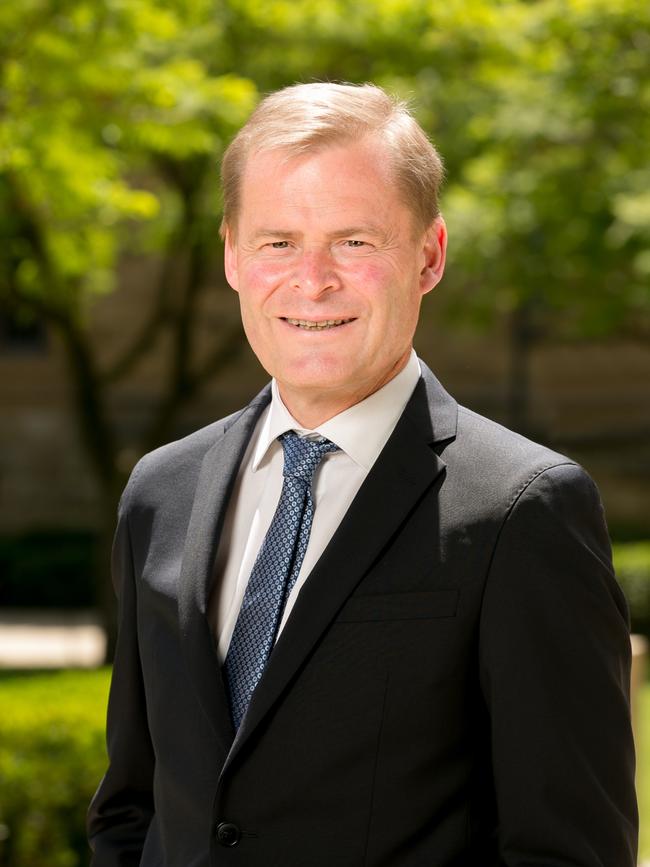
University of Adelaide vice-chancellor Peter Rathjen credits the institution with not only shaping his career, but enabling his very existence.
“My mother and father were both first-in-family to go to university, and they came from completely different backgrounds and different parts of Adelaide,” he said.
“Had it not been for the University of Adelaide, I doubt they would have ever met, and I wouldn’t be here today.
“My father worked for almost 50 years for the university and some of my earliest memories are of the Waite campus, where even as a young boy I helped my father with his crop-breeding work and played among the fields.”
Professor Rathjen, a stem cell scientist, has been made an AO for services to higher education. The University of Adelaide graduate was a Rhodes Scholar at Oxford before returning to his home uni to rise through the ranks.
He was later deputy vice-chancellor at University of Melbourne and vice-chancellor of University of Tasmania before returning to SA last year.
— By Tim Williams
ADRIAN CHEOK, AM
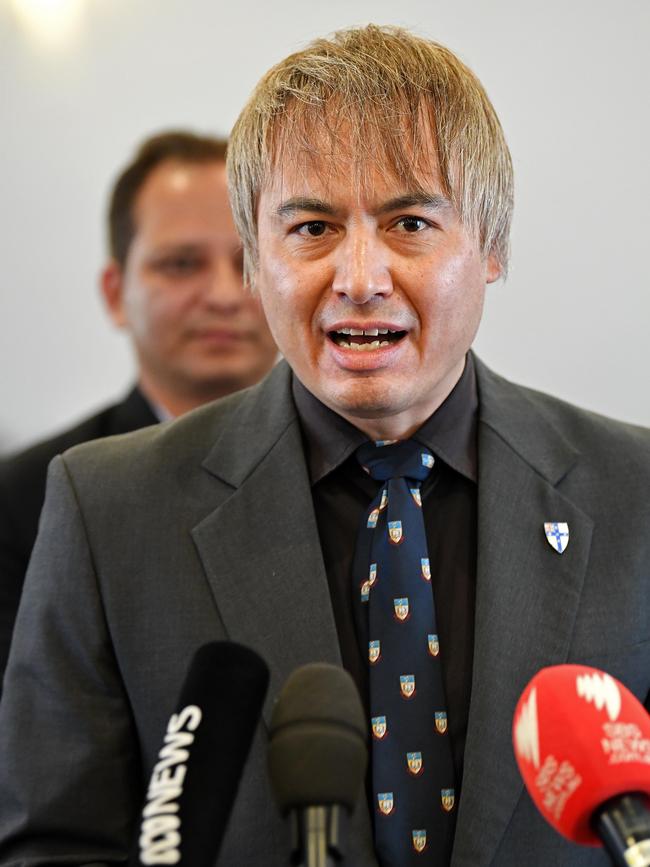
Robot-sex professor Adrian Cheok has been honoured for his work researching human-computer relations.
Prof Cheok receives the AM for his “significant” contribution to international education.
The Adelaide University alumnus is the director of the Imagineering Institute in Malaysia and a visiting professor at several universities around the world, including the University in Tokyo, Raffles University in Malaysia, University of Novi Sad-Serbia in Serbia, and previously at the University of London.
He specialises in mixed reality, human-computer interfaces and wearable computers, and has published over 200 research papers.
Prof Cheok was also behind a cancelled “Love and Sex with Robots” conference in Malaysia four years ago.
He stood for Fraser Anning’s Conservative National Party in the marginal South Australian seat of Boothby, ultimately won by sitting Liberal MP Nicolle Flint, at last month’s federal election.
— By Josephine Lim
JOHN SCANLON, AO
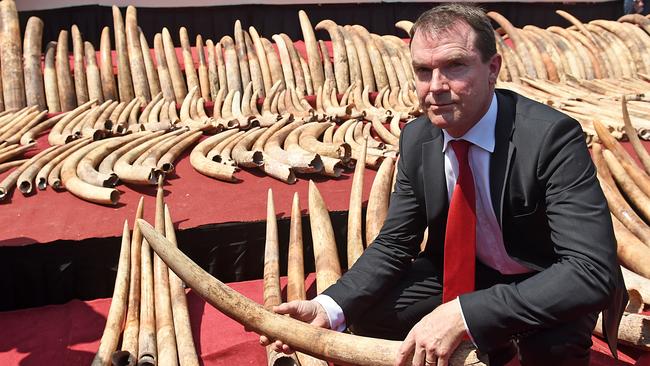
Over a career spanning 30 years, Jon Scanlon has championed environmental causes across the world.
His time with global authorities such as the International Union for the Conservation of Nature and United Nations Environment Programme have taken him from South Australia to Germany, Kenya, South Africa and the Russian Federation.
Mr Scanlon said he was proud of raising awareness of the scale and severe consequences of the illegal wildlife trade across the globe.
“We highlighted the dire plight of the elephant, rhino, pangolin and, later on, precious timber and marine species, and how this illicit trade was fuelling corruption, instability and poverty,” he said.
Mr Scanlon is now special envoy for the African Parks Foundation which manages 15 protected areas across nine countries with two more countries and four parks expected to be added soon. He and his family are based in Switzerland.
— By Mitch Mott
JOHN LITT AM
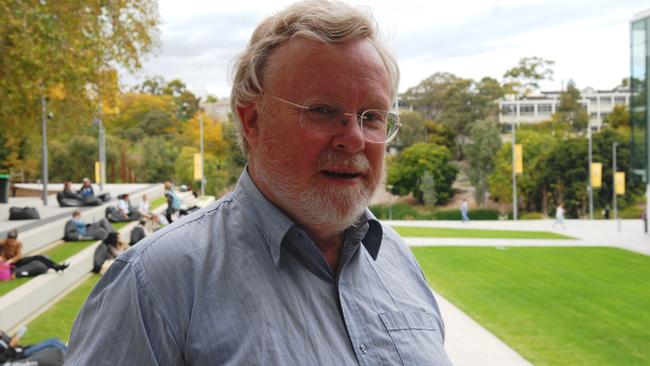
Influenza expert Associate Professor John Litt seizes the opportunity to promote immunisation when asked to talk about his Queen’s Birthday award.
In the early 1990s, only 29 per cent of people over 65 had a flu shot.
“We’ve got coverage up to around 80 per cent (of over-65s) but we could do better,” Prof Litt said.
He is being recognised for service to preventative medicine as an influenza specialist and as a general practitioner.
He was instrumental in producing what is commonly referred to as The Green Book — guidelines for GPs on delivering prevention strategies.
Vaccines prevent disease but secondary prevention, picks up existing problems early, such as high blood pressure, to prevent further issues, such as a stroke.
Retired from Flinders University medical school, Professor Litt was a long-serving board member and director of the Influenza Specialist Group.
He has a lifetime achievement award from Lung Foundation Australia and the Rose-Hunt Award, which is the highest accolade of the Royal Australian College of General Practitioners.
— By Jill Pengelley
SOUTH AUSTRALIAN RECIPIENTS
AC (Companion in the General Division)
Emeritus Professor John Mitchell FINNIS
For eminent service to the law, and to education, to legal theory and philosophical inquiry, and as a leading jurist, academicand author.
AO (Officer in the General Division)
Dr Derek BYERLEE
For distinguished service to agricultural economics, particularly to sustainable development, poverty reduction and food security.
Mr Michael Edward DAVIS
For distinguished service to the space industry as an advocate, and to science education.
The Honourable Nicholas Hugh MINCHIN
For distinguished service to the Parliament of Australia, particularly in the industry and finance portfolios, and to thepeople of South Australia.
Professor Peter David RATHJEN
For distinguished service to higher education through senior administrative roles, and as a scientist and medical researcher.
Ms Natasha Jessica STOTT DESPOJA AM
For distinguished service to the global community as an advocate for gender equality, and through roles in a range of organisations.
AM (Member in the General Division)
Professor Adrian David CHEOK
For significant service to international education.
Mr Andrew Laurence DAVIES
For significant service to architecture, and to the community.
Mr Nigel Howard DAVIS
For significant service to the manufacturing and supply of dental products.
Dr Peter Ronald DRY
For significant service to viticulture, particularly to wine-grape research.
Mr Gregory Deane EDGECOMBE
For significant service to Australia-Indonesia relations, and to the community.
Ms Margaret Charlotte FISCHER
For significant service to the festival sector, and to the LGBTIQ community.
Ms Frances GERARD
For significant service to the hospitality industry, and to the arts.
Mrs Kerry Margaret HEYSEN-HICKS
For significant service to the film industry as a producer.
Ms Athena (Tina) KARANASTASIS
For significant service to the multicultural community of South Australia.
Mr Marcus Dallas LA VINCENTE
For significant service to the not-for-profit sector, particularly through legal support.
Dr Peter Edgeworth LILLIE
For significant service to medicine in the field of anaesthesia.
Dr John Charles LITT
For significant service to preventive medicine as an influenza specialist, and as a general practitioner.
Mr Dennis MEREDITH
For significant service to hockey at the local, state, national and international level.
Mrs Beverley Maeling OVERTON
For significant service to conservation and the environment.
Emeritus Professor Anthony James RADFORD
For significant service to medicine, to medical education, and to global health.
Mr Leigh Anthony ROYANS
For significant service to social welfare in South Australia.
Mr Guy Theodore SEBASTIAN
For significant service to the music recording industry, and to charitable initiatives.
Mr Bruce Raymond SPANGLER
For significant service to basketball, and to the community.
Mrs Jennifer Irene TEASDALE
For significant service to education, and to international relations.
Mrs Faith THOMAS
For significant service to cricket, and to the Indigenous community.
Professor Brenda WILSON
For significant service to community health, and to the people of South Australia through a range of roles.
The Honourable Terence Anthony WORTHINGTON QC
For significant service to the law, and to the judiciary.
OAM (Medal in the General Division)
Mrs Nancy Vanette BALDOCK
For service to community history.
Mr Ernest Lionel BENTLEY
For service to the communities of Millicent and Beachport.
The late Mr Guy Stuart BOWERING
For service to veterans and their families.
Mr Robert BUCHANAN
For service to the maritime transport industry.
Mr John CARRANGIS
For service to the community of Rosefield.
Mr Norman Richard COLEMAN
For service to veterans and their families.
Mr Trevor John CORBELL
For service to the community through a range of organisations.
Ms Marilyn Barbara CRABTREE
For service to aged welfare.
Mrs Gwenyth Mary CROMBIE
For service to the Indigenous community of South Australia.
Mr Jack CROMBIE
For service to the Indigenous community of South Australia.
Mr Gregory John DREW
For service to mining as an historian.
Mr Leon George EDDY
For service to veterans and their families.
Mr Brian Lawrance EDWARDS
For service to surf lifesaving.
Mrs Jeanette Mary ELLIOTT
For service to the community of Mount Gambier.
Ms Katharine Elizabeth ENGLAND
For service to literature.
Mr John EVANS
For service to the tourism industry, and to rail history, in South Australia.
Mrs Shirley-Anne GALE
For service to music.
Mrs Joan Edith GILBERT
For service to the community, and to the Anglican Church of Australia.
Mr Timothy John GRIEGER
For service to the agricultural show sector.
Mr Brian Robert HADDY
For service to science education.
Mr Robert John HANDLEY
For service to the community through a range of organisations.
Ms Angela Rosemary HAZEBROEK
For service to town planning.
Mr Kevin George HEIN
For service to the performing arts, and to the community of Mount Gambier.
Mr Daryl Keith HOCKING
For service to diving.
Mr Raymond John KEMP
For service to veterans and their families.
Mr Antony William KEYNES
For service to athletics.
Mr Stephen Francis LARKINS
For service to the community, and to veterans.
Mrs Lynette Lorraine LEAHEY
For service to veterans and their families.
Ms Suzanne Ellen LEWIS
For service to diving.
Mr Clement Paul McARDLE
For service to veterans and their families.
Dr David Keith MARTIN
For service to medicine in the field of orthopaedics.
Mr Philip Michael MARTIN
For service to Australian rules football, and to the community.
Mr Samuel Peter MATTEY
For service to local government, and to the community.
Ms Carol Ann MIELL
For service to the community through marine rescue organisations.
Ms Kylie Shae MINES
For service to disabled people in the Asia-Pacific region.
Mrs Margaret Reece NASH
For service to tennis.
Mr Peter Herbert NETTELBECK
For service to the community of Gawler.
Mrs Lynette Mary NITSCHKE
For service to the community, particularly through victim support.
Mrs Margaret Ann NUNN
For service to the community through St John Ambulance.
Mr Graeme Leslie PASCOE
For service to the community through Lions Clubs Australia.
Mrs Susanne Haydon PEARCE
For service to children’s charitable organisations, and to the community.
Ms Margaret Joan RUSSELL
For service to the community through a range of organisations.
Mrs Kaye STEER
For service to the community through hospital auxiliaries.
Mr Austin Robert TAYLOR
For service to education, and to community health.
Mr Michael Leslie TUOHY
For service to the community of Mount Gambier.
Mr Jeffrey Walter TURNER
For service to community history.
Mr John Ronald WHITE APM
For service to community history.
Mrs Lynette Faye WOODFORDE
For service to community health.
PSM (Public Service Medal)
Mr Peter Bruce COPLEY
Ms Alexandra Mary-Ellen REID
Mr Lachlan John SUTHERLAND
APM (Australian Police Medal)
Senior Constable First Class Michael Paul KLOSE
Senior Sergeant First Class Darren MULDERS
Assistant Commissioner Philip Lachlan NEWITT
ASFM (Australian Fire Service Medal)
Mr Shane FRANCIS
Mr Allan Robert MARSHALL
ASM (Ambulance Service Medal)
Mr Paul David LEMMER
ESM (Emergency Service Medal)
Ms Susan Joyce ROBINSON


